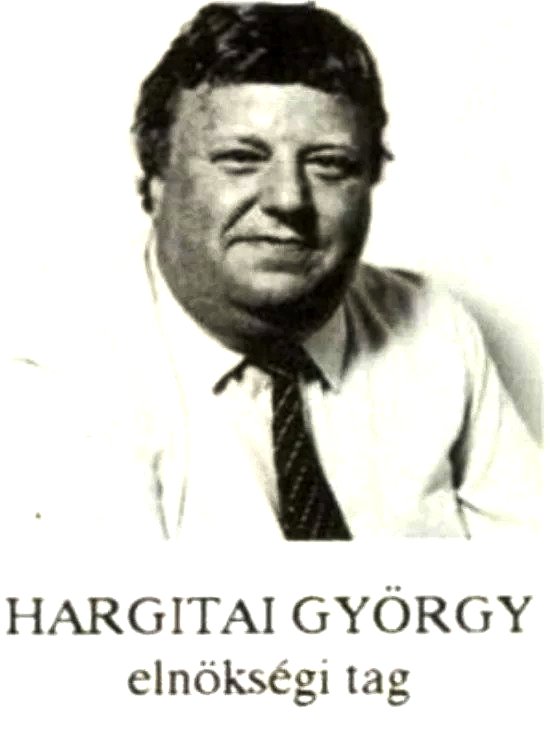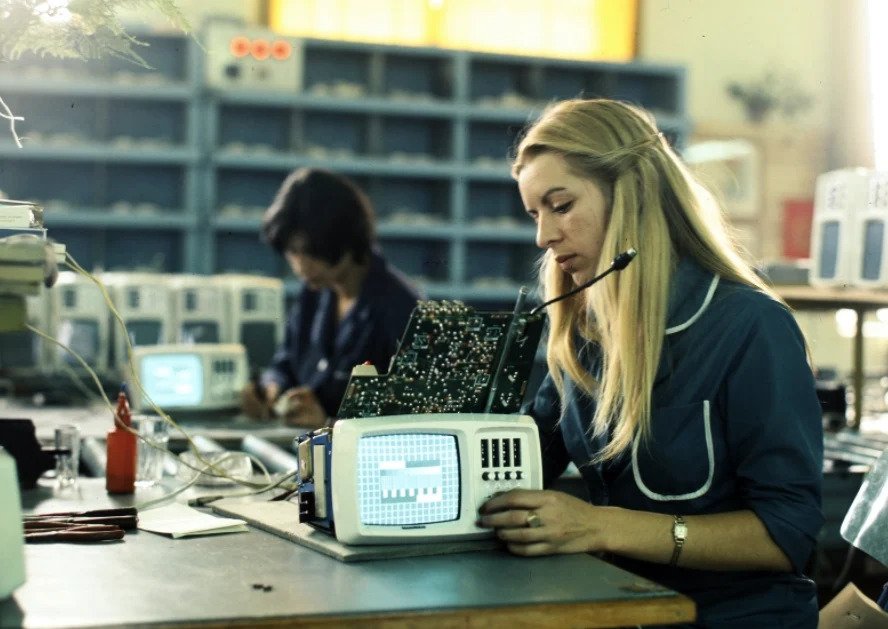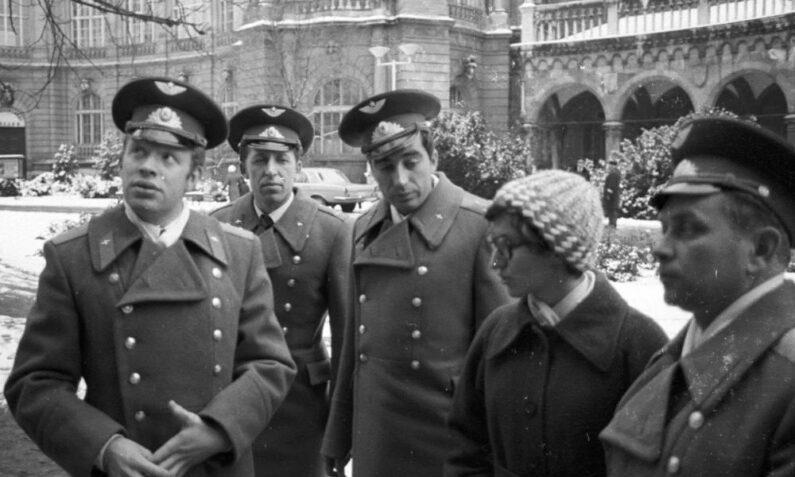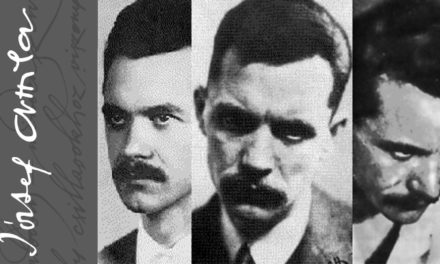The historian Zsuzsanna Borvendég's series was originally published on the PestiSrácok website, but there are certainly those who missed it. But those who haven't read all the parts should also read it again. Knowing the whole picture, can we understand how we got here?
On March 26, 1982, Csaba Balogh applied for political asylum in FRG. His act very delicately affected the secret services of the Eastern Bloc, and since the case is still not lost in the dark gloom of the past, a significant part of the related documents cannot be researched.
Csaba Balogh was a connoisseur of sensitive secrets, since between 1974 and 1976 he worked as a software specialist in the Customer Service of the Videoton Computer Factory as a system organizer, and then he was sent to Moscow for a long-term assignment. Until November 1981, he was an employee of Videoton Rt.'s Moscow Technical and Commercial Center, so he had detailed knowledge of the branch's warehouse , which supplied the Soviet electronics and computer technology industry with the necessary parts.
He was familiar with the users, thereby getting to know top secret Soviet objects from the inside. He knew their organizational structure, saw their activities and production specifications. It's no wonder his transition has raised concerns in some quarters.
Interrogation, then an unexpected return home
However, just three months later, an unexpected turn of events occurred: Balogh returned home on July 10, 1982. I wonder why? Was he really homesick, as he later told his interrogators? In any case, he was interrogated by the CIA nearly thirty times during the time , during which the former Videoton employee willingly answered the questions asked. He gave detailed information about the products made by the factory, the deliveries to the Soviet Union, the technical level of the block, and everything that was of interest to the Americans. Then he came home. At home, the opposite situation arose: the domestic secret service had to account for his betrayal.
Most of all, it was extremely important to find out how compromised the embargoed channels were. And of course, the experiences at the CIA base were also of interest in the prevention. Finally, on April 27, 1983, in a closed trial, Csaba Balogh was judged, who was found guilty of espionage and sentenced to four and a half years in prison. But why is Balogh's strangely brief escape interesting?
Because he asked for help from an old friend in Munich, he submitted his asylum application with his assistance: the friend was György Hargitai (Was the whole escape and return part of a game in which something was calculated? I can't tell.)
Hargitai was untouchable
Hargitai was the manager of the Waltham company in Munich from January 1, 1979, before that he served for many years at the Vidipex site in Moscow, where he was also the boss of Csaba Balogh. In the course of the investigation against Balogh, incriminating information was also revealed about Hargitai: they wanted to file a report against him for money laundering and customs crimes, but all this was prevented from a higher place. "Potential separation of your case and the omission of action can only take place with the approval of the General Prosecutor's Office, which supervises the legality of the investigation, or possibly on the basis of the order of the chief prosecutor" - the counterintelligence tried to resist the pressure, but without success, Hargitai could not be held responsible.
The position that Hargitai held in Moscow must have been quite remarkable from an intelligence point of view; it was difficult for those performing such tasks to avoid cooperation with the KGB. It also points to the distinguished trust of the operators of the communist system, that Hargitair was entrusted with smoothing over the scandal surrounding the Waltham company at the end of the 1970s.

György Hargitai in an article about the Videoton team
Even under Hargitai's leadership, financial maneuvers suspected of abuse did not decrease, but this was not the goal, but the cover-up of crimes. This was successfully completed by the new company manager, and no further investigation was initiated against Waltham. Although it is not possible to read from the surviving archival documents what kind of financial structure was used to transfer the money out of Hungary through Waltham during the eighties, we do have some information about the company's secret service activities.
From these fragmentary data, it can be guessed that in addition to the loss of one hundred million forints in the seventies (which you could read about last week) and eight hundred million schilling loans taken out and not repaid during the years of regime change (we will deal with this next time), they may have caused serious financial losses to our country in the eighties as well. since Waltham continuously supplied the embargoed products to the Soviets, and Hungarian citizens paid the price for this.
Ulrik Range, the German business partner
Videoton, as one of the most important suppliers in the Soviet Union, was primarily supplied with COCOM-listed products by Waltham and its affiliated dealers, and the company's activities caught the eye of the West German countermeasures as well. One of Waltham's most important business partners, Ulrik Range, was presumably brought down by the American or West German secret service in 1981, and then the German customs authorities launched an investigation against his company.
Range primarily sourced American-made computer components and microprocessors for Waltham, and was aware that the equipment would go to Moscow. After the investigation began, Range immediately stopped the deliveries of the embargoes, and did not fulfill the contracts that were already in progress. The loss of Range caused problems for Waltham, and it worked on securing alternative routes, which is how an American company called Telxon came into the picture, whose Swiss subsidiary was headed by a Hungarian emigrant.
They managed to agree that, in the case of embargoed goods, "markings will be used that allow for safe passage through foreign customs authorities" , indicating Far Eastern end users as recipients.

image: Fortepan
The West Germans launched an investigation
By the summer of 1983, the threads of the investigation against Range led to the Videoton subsidiary: on July 11, the West German police searched Waltham's office, Hargitai's apartment in Munich and the home of the German deputy company manager, Günter Hummelt, and took away Hargitai's personal documents and seized his passport . although the latter was returned the very next day.
The authorities searched for evidence of unauthorized export of products on the COCOM list and seized a number of documents. The Hungarian and Soviet services were right to fear that the enemy countermeasures had found incriminating data on illegal shipments. Therefore, BM III/II-6. The department sent Hargitai home for reporting through the employer Videoton Rt., and informed the Soviet state security agencies about the developments.
However, Hargitai could not be surprised by the interest of the West German customs authorities - obviously the proceedings against Range made him cautious - so by the time of the house search he had already destroyed all documents that would have been incriminating for the activities of the Videoton representative office. As no evidence was found, the German authorities could not restrict Waltham's business activities, but indicated that the investigation would continue.
On October 4, 1983, an unknown caller warned Hargitai to leave the FRG because he could expect another official action. In parallel, MNVK-2. he informed the operative bodies of the BM that the Germans wanted to detain the head of the Munich office, so the interior sent Hargitai home again for a briefing. They then trained him on how to behave in the event of another interrogation or possible arrest.
In the spring of 1985, the investigation against Range ended with a proposal to indict, and the investigation material related to the Hungarian company was handed over to the Munich prosecutor's office.
In search of additional evidence, the prosecutor's office inspected the office several times: they checked the accounting, checked the received invoices and the documentation of deliveries to the Eastern Bloc. At the beginning of September, the people of the prosecutor's office set off on new clues, probably touching on one of Waltham's secret routes: they seized the documentation of the shipments that Videoton's representative office in Munich delivered to a third country via Switzerland.

image: Fortepan
The Swiss connection
However, the Hargitais were prepared for a possible new inspection: they only kept the invoices of electronic equipment that were not subject to embargo restrictions. This time, too, the investigators failed to collect evidence, even though they started the new research with very specific information.
The customs authorities of the Federal Republic of Germany also found out through which intermediary companies Waltham solves the deliveries through Switzerland. a company called SCS GmbH (Strafa Control System) in Switzerland - presumably with Liechtenstein registration and Urs Hansel The task of this was to "acquire embargoed equipment and technologies necessary for the implementation of the microelectronics program at that time and forward them to Budapest" .
In addition, there was also a company called Setron in Switzerland owned by Waltham, whose head was also Urs Hansel. The West German authorities requested the data of the two companies' accounts in Swiss banks: they were interested in an extract of their bank transactions between 1983 and 1986. The Hungarian state security agencies were afraid that the collected information could reveal to the enemy the role of the companies involved in the Hungarian electronics program and could possibly provide a basis for some kind of administrative countermeasure. However, the concern turned out to be unfounded: according to a court decision, the seized documents had to be returned to the account owners in an unopened form, meaning that the Swiss bank secrets could not be accessed even under the pressure of the seemingly strong American embargo administration.
Waltham supplied high technology to the Soviet Union until the end of the eighties, but even after the collapse of the communist regime, Hargitai did not let his business and other relations be lost: he became one of the most professional masters of fishing in the dark.
Source: PestiSrácok
Author: historian Zsuzsanna Borvendég
(Header image: Soviet soldiers in Hungary (illustration). Source: Fortepan)












